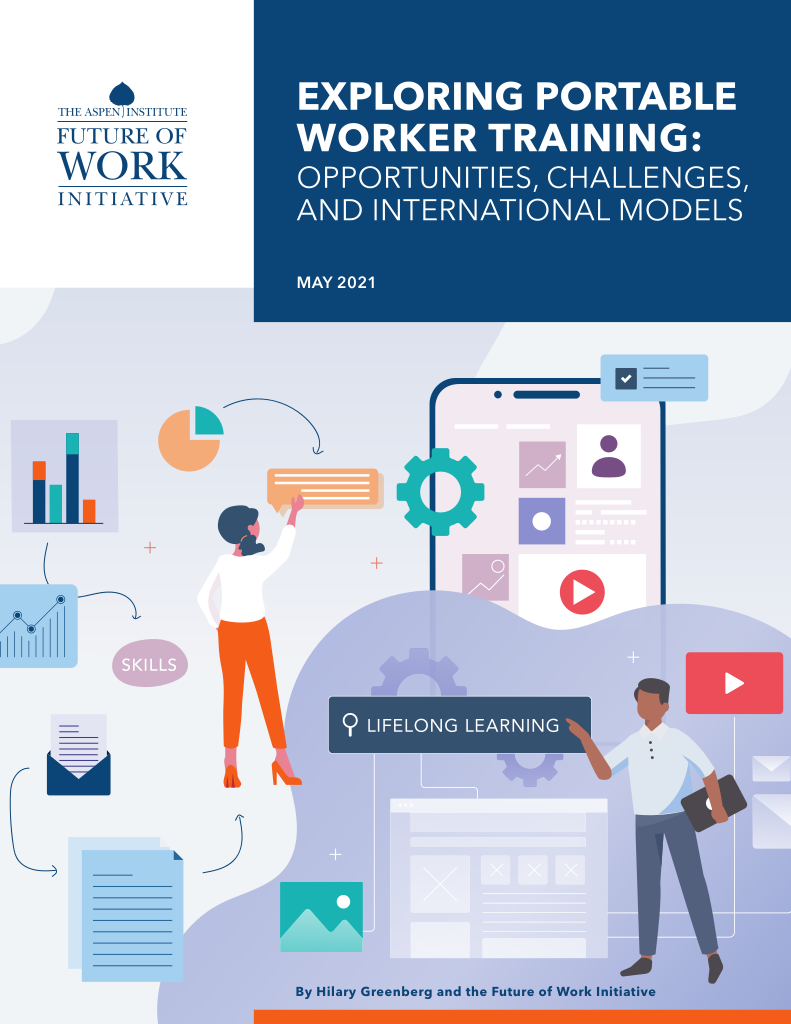The COVID-19 pandemic and resulting economic downturn have made clear the need for a more resilient and adaptable economy. Though expanding vaccinations have led to major strides in recovering from the public health crisis, current trends are poised to continue disrupting the economy—including expanding automation, the rise of remote work arrangements, and the adoption of nonstandard work. In addition, climate change and public health concerns may more drastically impact the world in coming years. We face a critical need to equip workers for economic stabilization, recovery, and ongoing resilience, including providing access to effective education and training.
The recovery ahead, though difficult, presents an opportunity and imperative to create a more sustainable, inclusive, and future-ready economy. First and foremost, workers must be safe, empowered, and supported by a robust safety net. As we face economic, occupational, and technological changes, many workers will also need to obtain new skills to succeed both in their existing roles and in new positions and new industries. Even before the COVID-19 health and economic crises, workers increasingly needed to be able to shift between work and training throughout their career. However, the US workforce and training system is decentralized, and shaped by the same structural inequalities that permeate society. Access to both training and job opportunities are not equally available, with persistent and severe racial and place-based disparities. Government, business, labor, and education leaders need to consider ideas to build and strengthen inclusive systems of lifelong learning that provide opportunities for adult workers to develop and improve the knowledge and skills they can apply to their jobs.
This brief explores one such approach: separating training from specific jobs, so that workers can accumulate the benefits of training as they work across multiple jobs or switch jobs frequently, an approach we call portable training. In the following sections, we first contextualize portable training in the current landscape of worker education and training in the US. We then consider the potential strengths and risks of a portable approach. Finally, we look abroad and consider several portable training programs that have been established in France, Singapore, Canada, and Scotland, highlighting how program design choices can mediate the possible challenges of a more portable system of training.
Share
Tweet In this issue brief, @AspenFutureWork explores portable training, an approach that separates education and training from specific jobs, so that workers can accumulate the benefits of training as they work across multiple jobs or switch jobs frequently.
Tweet To build an inclusive #FutureOfWork, our leaders must implement and strengthen systems that promote lifelong learning and skill development for all.
Tweet #PortableTraining allows workers to accumulate training benefits across jobs. As we look to the #FutureOfWork, creating inclusive systems of lifelong learning will be crucial.
Tweet Even after the pandemic is over, workers will need to navigate disruptions and transitions. It’s more important than ever to build an adaptable economy that focuses on the needs of its workers. #PortableTraining is a step toward this goal.
Learn More
The Future of Work Initiative aims to identify, develop, and amplify solutions that address the challenges of today while building toward a future in which workers are safe, empowered, and equipped to thrive in our changing world. The Future of Work Initiative is an initiative of the Economic Opportunities Program.
The Economic Opportunities Program advances strategies, policies, and ideas to help low- and moderate-income people thrive in a changing economy. Follow us on social media and join our mailing list to stay up-to-date on publications, blog posts, events, and other announcements.


